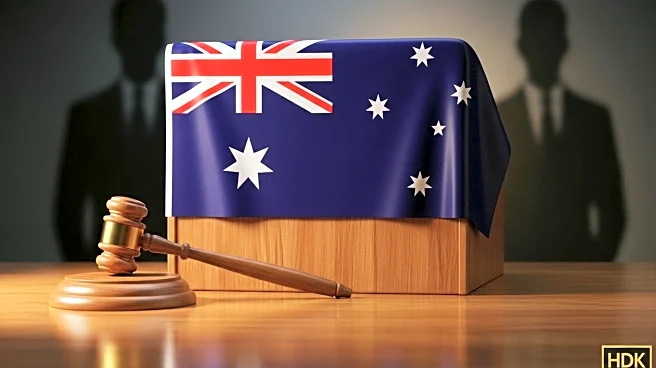What is the story about?
What's Happening?
Andrew Hastie, the shadow home affairs minister in Australia, has publicly expressed support for Sussan Ley amid speculation about a potential leadership challenge. Hastie's recent policy interventions, including calls to abandon net zero by 2050 and reduce net overseas migration, have fueled rumors of a leadership tilt. Despite these speculations, Hastie has affirmed his support for Ley, emphasizing his role as a team player within the party. His policy positions have sparked debate within the Liberal Party, with some members concerned about the party's direction and its ability to appeal to voters.
Why It's Important?
The internal dynamics within the Liberal Party reflect broader challenges facing political parties in balancing policy positions with electoral appeal. Hastie's stance on migration and climate policy highlights divisions within the party on key issues that resonate with the electorate. The outcome of this internal debate could influence the party's strategy and positioning in future elections. The leadership speculation also underscores the importance of unity and clear policy direction in maintaining party cohesion and electoral competitiveness.
What's Next?
The Liberal Party will need to navigate these internal tensions as it prepares for upcoming elections. The party's leadership and policy positions will be critical in shaping its electoral prospects. Hastie's influence and policy proposals may continue to shape the party's agenda, potentially leading to further debates and discussions within the party. The party's ability to present a united front and articulate a clear vision will be crucial in its efforts to regain voter support.
Beyond the Headlines
The leadership speculation within the Liberal Party highlights the challenges of political leadership in addressing complex policy issues such as migration and climate change. The party's internal debates reflect broader societal discussions on these issues, emphasizing the need for political leaders to engage with diverse perspectives and develop inclusive policy solutions. The situation also underscores the role of political parties in shaping public discourse and policy outcomes.

















